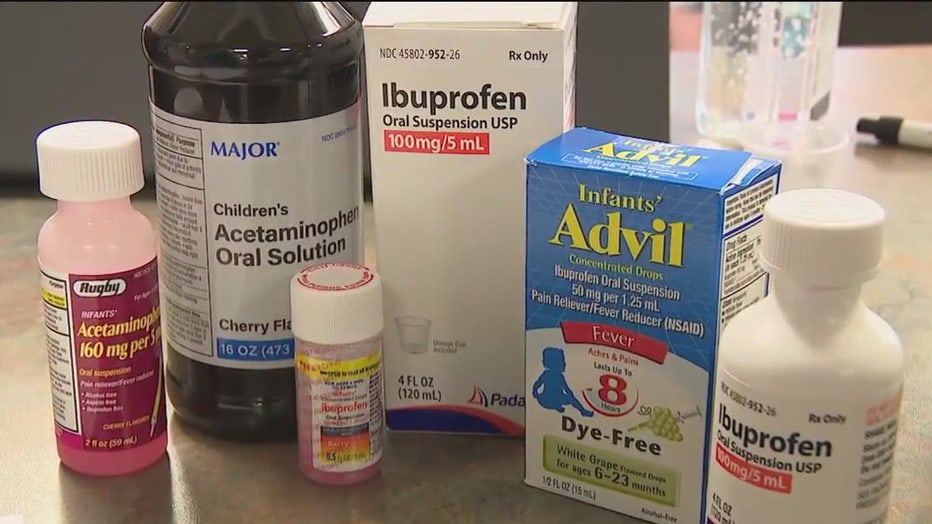NY attorney general warns of price gouging of these children's medications
NEW YORK - New York Attorney General Letitia James invited the state’s residents to report any price gouging by stores facing shortages of painkillers and fever reducers for children.
The attorney general issued a consumer alert amid a surge of cases of the coronavirus, RSV and the flu, urging anyone who spots gouging to report it to her office amid a national shortage of medication for youngsters.
She noted that New York law prohibits merchants from taking unfair advantage of consumers by setting unconscionably high prices for anything vital to the safety, health and welfare of state residents.
"This year’s tripledemic is keeping many kids and babies sick at home, and families trying to care for them are confronting the national shortage of children's Tylenol and other medication," James said. "The last thing any family needs when a child spikes a fever or is in pain is to be price gouged on the medication they need."
RELATED: 5 pediatric flu deaths in NY this season
James also cautioned consumers to buy only as much children's medication as they need and not to stockpile supplies that might be needed by others. Retailers, she added, are permitted to limit the amount of medication that they sell to individual consumers when there is limited supply.
When reporting price gouging, consumers should:
- Report the specific increased prices, the dates and places that they saw the increased prices, and the types of medication being sold.
- Provide copies of their sales receipts and photos of the advertised prices, if available.
New Yorkers should report potential concerns about price gouging by filing a complaint online or calling 1-800-771-7755.

It comes as authorities in New York City and across the nation are warning Americans about the possibility of a so-called "tripledemic" of influenza (flu), COVID-19 and RSV.
All three are respiratory viruses that can be easily mistaken for one another, due to similar symptoms. While testing remains the best way to figure out what virus you might have, there are some small differences between the three that might give you a clue as to which one you've contracted:
RSV
- RSV, or respiratory syncytial virus, causes a cough, runny nose and a fever, and one of the unique symptoms of the virus is a wheeze or rattle when someone breathes.
- A very common virus, most children will get RSV by the time they turn 2 years old.
- In some cases, it can lead to severe illnesses like bronchiolitis, the swelling of the small airways in the lungs or pneumonia.
Influenza
- One of the most distinctive signs of the flu is a high fever, reaching 103 or 104 degrees Fahrenheit. It can also cause nausea and vomiting, along with fever, chills, fatigue, and headache.
- Children under the age of 5 and especially those under 2 are at higher risk of complications from the flu, including dehydration, ear and sinus infections, inflammation of the heart or brain tissues and pneumonia.
COVID-19
- COVID-19 has symptoms similar to flu and RSV, but unlike those viruses, can have a major effect on body systems outside the lungs, even causing the condition known as "Long COVID."
- Symptoms of COVID-19 include a cough, headache, shortness of breath, loss of taste or smell, diarrhea, and more.
Dr. Fauci discusses COVID-19, masks, fear of ‘tripledemic’
Dr. Anthony Fauci, the nation’s top infectious-disease expert, joined Good Day New York to discuss what's next for him after he prepares to step down from decades in public service at the end of the month. Fauci also discussed the COVID-19 pandemic, masks and the fear of a "tripledemic."
Again, the best way to figure out what virus you or your child might have is to get tested by a doctor. Many clinics now have tests that can detect flu, RSV or COVID-19 with a single swab.
Treatment options for all three viruses are broadly the same, comfort care, managing the fever and pain with ibuprofen or acetaminophen, and staying hydrated.
The Associated Press wire services helped contribute to this report.

